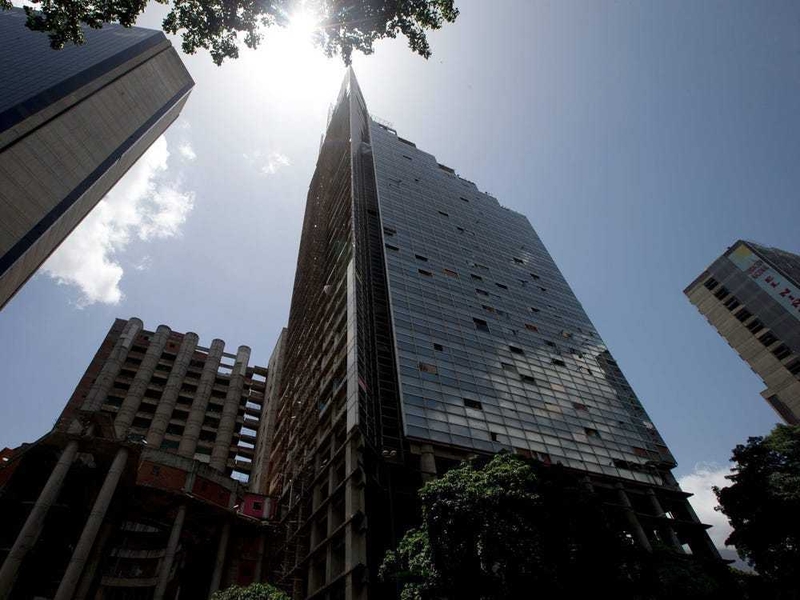Andrea Sandor on whether recent plans to approve a number of ‘co-living’ skyscrapers was a wise decision
This Thursday Manchester’s planning committee meets for the first time since the pandemic began. While other councils have been holding virtual planning committees since early April, Manchester City Council claimed they weren’t confident in the technology until now.
In the meantime, planning decisions have been taken by the council’s Chief Executive Joanne Roney 'alongside' the chair and vice chair of the planning committee, Cllr Basil Curley and Cllr Nasrin Ali. I put 'alongside' in quotation marks because Cllr Ali was absent from the last meeting, and Cllr Curley asked that the decisions be deferred to the next planning committee that had already been planned. Regardless, Roney approved all applications. From the report on the controversial Shudehill Shard, for example, it’s clear who the decision-maker was.
While some believe co-living is the answer to urban loneliness, others say it exploits young people who can’t afford to rent their own flat
In fact, all developments brought before Roney since April have been approved, including ones previously rejected by the planning committee (and opposed by Cllr Curley), and fiercely objected to by residents.
While my central concern at the time was the failure to reinstate democracy, I was also concerned that developments were approved that may no longer be appropriate for a post-COVID world.
'Co-living' developments will be a disaster for the city esp in these COVID-19 days. They represent nothing more than a intensified form of financial extraction that will cause social problems
Imp message f/ @gmhousingaction to the resumed planning committee...reject this scheme https://t.co/JlznwjZHsL pic.twitter.com/iHbsdsb9L2
— Jon Silver (@InvisibleMapper) July 27, 2020
A number of plans set to be approved by the planning committee this week reflect a particularly alarming commitment to the pre-COVID status quo. These include four ten to 45-storey 'co-living' glass skyscrapers on First Street in Deansgate ward on the border with Hulme, as well as 32 and 36-storey skyscrapers that include 'co-living' units on Water St in Deansgate.
Greater Manchester Housing Action (GMHA) have been quick to point out the 'co-living' towers could become 'slums of the future.' They are targeted at very specific demographics who it’s assumed will have the money, and will want to spend it to live in a very specific way. If they don’t, the entire premise falls apart.
'Co-living' in this context is aimed at transient young graduates and contractors. They live in a dormitory set-up with a shared kitchen, living room, and bathroom. While the 'luxury' bedrooms are often tiny, the pay-off is purported to be living somewhere more affordable than a private flat (not necessarily true) and having access to facilities within the development like a cafe, resident’s lounge, co-working spaces and even cinema.
A highly infectious global pandemic is potentially going to become endemic, so let's normalise and entrench the concept of young people on low incomes in insecure work having to share their communal spaces with strangers without the security of even an assured shorthold tenancy. https://t.co/JL9US6FQ0S
— Joe Lynch (@joeykins82) July 27, 2020
While this model has some history in other parts of the world, it’s new to the UK and completely untested in Manchester. The verdict is still out on whether co-living is a sustainable model, especially in light of the pandemic. A south London Council has raised the alarm about the incompatibility of co-living with social distancing and the inherent deadly health risks.
Even before the pandemic started, the model was called 'hotelisation of real estate' and criticised as 'cynical corporate dormitories.' While some believe co-living is the answer to urban loneliness, others say it exploits young people who can’t afford to rent their own flat. Hannah Wheatley, researcher on housing and land at the New Economics Foundation, told the Guardian: “Co-living is purely a new way for developers to squeeze profit from an already broken housing market.”
As if the housing situation in Manchester could become an even bigger parody of itself there are now proposals for huge "co-living" developments - student housing but not for students. Bad living conditions, bad for the community
Decision THIS THURSDAY👇https://t.co/DBP4JvUPhl
— beth redmond 🇵🇸 (@redbethmond) July 27, 2020
In Manchester, some of the proposed developments are to be marketed as short-term lets. One planning application says the space 'would not be acceptable as permanent homes and the applicant accepts that the length of tenure would be restricted to six months.'
Is it safe to assume there will be sufficient demand for this type of dwelling for decades to come? What happens if the market for co-living dries up? It won’t be possible to easily adapt it to new uses because it has been made for such a specific use. As this developer acknowledges, people won’t want to live there long-term because they’re not homes.
Last December, Manchester City Council appeared more cautious. A report stated: 'Given that the product (co-living) is untested in Manchester, it is not considered appropriate to approve a significant level of co-living accommodation.' However, as GMHA discovered, the report appears to have been 'updated' this month, radically changing tack. Co-living is presented in one planning document as 'adding value' to regeneration frameworks by 'driving employment, creating place, and supporting the talent needed to support growth.'

To the skeptical observer this looks like a panic move to lock in short-term investment in response to the pandemic. But if this model proves not to work, the long-term economic consequences to the city could be dire. Glass skyscrapers rely on high-tech systems to heat and cool them, and are expensive to operate and maintain. Unlike a standard building, expensive maintenance cannot be easily deferred. The single-purpose mammoth glass structures could become slums at the heart of the city, or even become abandoned as numerous skyscrapers around the world have been when economic fortunes changed.
Recall that Hulme Crescents was originally presented as a bold new vision for urban living but was not fit for purpose. Because the huge structures could not be economically adapted and were expensive to maintain, the buildings eventually had to be demolished, with huge financial cost to the taxpayer, and untold human cost to the community.
Once again, Hulme faces being subjected to another potential white elephant as four of these hulking towers are being imposed on the community. Hulme councillors have objected but can't object verbally at the planning committee because the towers aren’t located in their ward. The plans won’t benefit the people of Hulme, and the costs once again risk being carried by them.
We are entering uncertain times - adaptability should be our guiding principle. We want Manchester to continue to grow, but we must do so with developments that can cater to broader uses and be adaptively reused when circumstances change.
With the return of the planning committee, I hope we see our local politicians grasp the gravity of the situation. Life is unlikely to return to how it was before COVID-19. The economic consequences have only just begun. The choice is between approving developments designed for an era that is over, or considering Manchester’s longer term resilience and only accepting those that are robust and adaptable for our uncertain brave new world.
Follow Andrea on Twitter @wordstoseeby
What you can do
Contact Deansgate councillors before Thursday to tell them what you think about the developments and how we should judge applications going forward. Contact Cllr Marcus Johns (cllr.marcus.johns@manchester.gov.uk), Cllr Joan Davis (cllr.j.davies@manchester.gov.uk) Cllr William Jeavons (cllr.william.jeavons@manchester.gov.uk)
Respond to the ten to 45-storey co-living proposal here
Respond to the 36-storey plan on Water St here
Respond to the 32-storey plan on Water St here
Read more: Manchester's planning committee returns and Salboy multiplies
Read again: Manchester demolished: A recent search reveals city planning insanity
Main image: Vita Denton Corker Marshall














